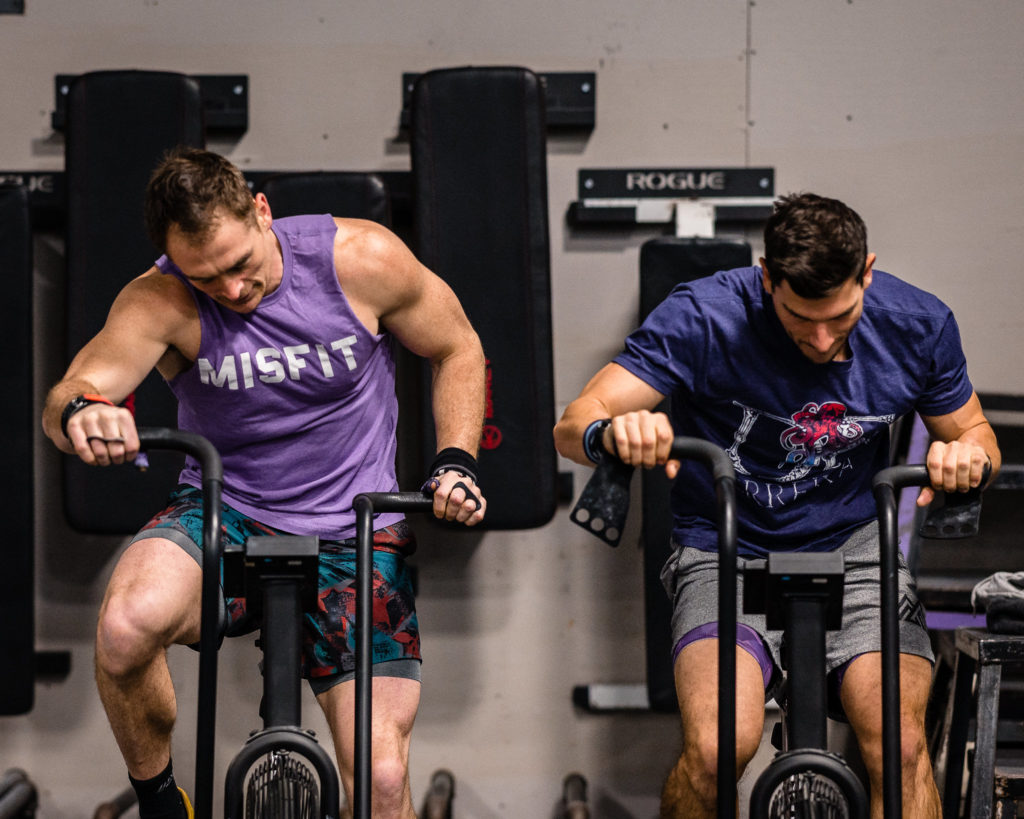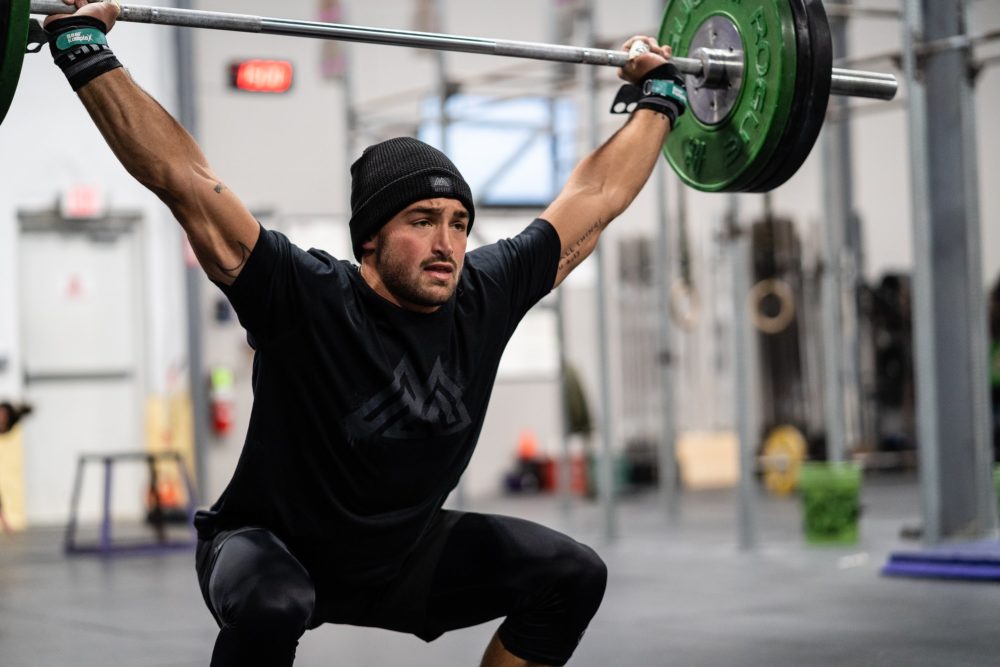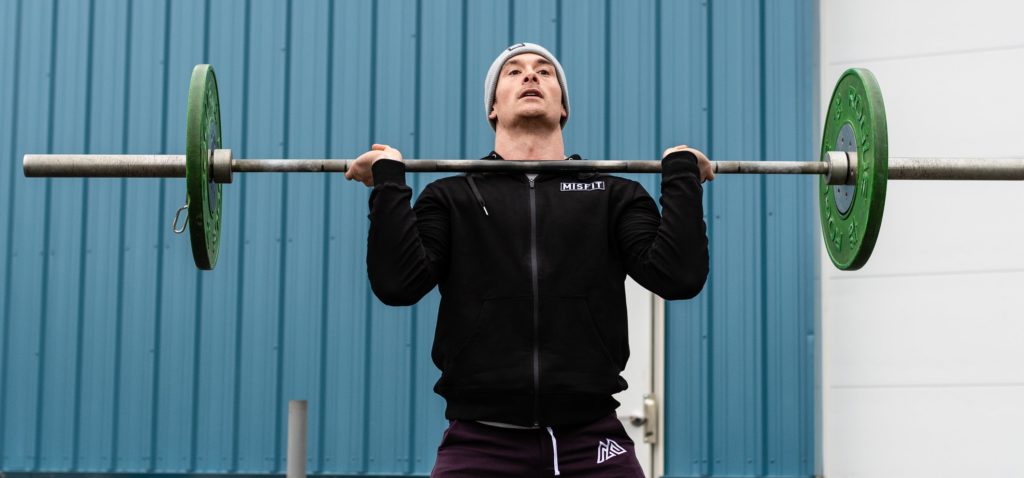The Traveling Misfit

Traveling. It’s something we all do at some point. Whether for work, leisure, or competition it’s often unavoidable and can derail both your training and your health. With the direction the sport of CrossFit is headed, it’s clear that part of your preparation as a competitor will be how well you handle traveling and subsequently, being able to perform at a high level when you get there. We know how much hard work you put into your training and how important it is to you to perform at your absolute best at all times, so we want to give you a leg up on your competition with some strategies to combat the adverse side effects that go along with travel.
Stress
Traveling is often seen as stressful, even when done for pleasure. Did you pack everything you need? Is your passport still valid? Is your alarm set? Will you make your connecting flight? Then there’s the (in)convenience factor of actually flying. Red-eyes or early morning flights may be the cheaper flights that save you some bones, but they come at the cost of staying up later than you wanted or having to wake up unusually early. All of these factors are stressors that not only impact your ability to think clearly and perform, but also weaken your immune system, making you susceptible to sickness.
We often hear when people are coming back from traveling they get sick because of their compromised immune system. If you’re attempting to boost your immune system as you begin to travel, it’s already too late. Instead, you should be focused on boosting your immune system at least a week or two before you leave for your trip. If you’re a fan of the Misfit Project, you’ve heard Drew go in depth about the benefits of fasting which is an excellent way to ensure your body stays performing at a high level (you can check it out HERE). Seventy percent of your immune system lives in your gut and fasting helps ensure that the “bad gut bugs” aren’t being fed in the days leading up to travel. A fasting protocol of 12 – 16 hours in the days leading up to travel is an excellent way to boost the immune system. Once your fast is over, your body is going to be begging for nutrients, so our next step needs to be optimizing nutrition.
Fuel
As previously mentioned, travel is typically done at odd hours (early morning or late at night). As a result, your cortisol is spiked and this can have a direct effect on your mental resources (“give a shit” factor), and your blood sugar. If your mental faculties are low and your blood sugar is fluctuating, you’re more likely to make poor diet choices: Starbucks Frappuccinos, Auntie M’s Pretzels, Cinnabon or other junk food often found at airports. These poor food choices not only make you crave more junk food (a negative feedback loop), they also feed the bad bugs in your gut and further compromise your immune system. The key to avoiding this situation is preparation. In the days leading up, focus on nutrient-dense foods such as bone broth, grass-fed & pasture raised meats, vegetables, greens, etc. You’re looking to feed the good bugs in your gut and starve the bad ones. Second, pack your snacks. Bringing protein and fat based snacks on the road will ensure that you’re avoiding the never-ending rollercoaster of blood sugar spikes and crashes. My personal favorite airport snacks are beef jerky, cheddar cheese from grass-fed cows, and mixed nuts. Don’t allow yourself to get trapped with convenience-store choices available at the airport. Once your fuel is in check, it’s time to ensure you’re adequately hydrated.
Hydration
Stress can affect hydration, and hydration can affect stress, another negative feedback loop. Additionally, airports and airplanes are typically dry environments that can further dehydrate you. Dehydration directly affects how your adrenal glands and therefore your hormones, perform. Pack an *empty* water bottle with you (so you can get through security) along with the following travel-assisting supplements to ensure you stay adequately hydrated during your trip. The first supplement you should consider bringing with you is some form of electrolytes. Electrolytes are naturally lost throughout the day through movement, sweating, and urinating, so it’s vital that we replace what we lose daily. Secondly, packing a combination of MCT (medium chain triglycerides) and a green supplement ensures we are getting both quality energy and a diverse micronutrient profile, both of these two supplements can be purchased in travel pack versions. The reason the two previous supplements are “packaged together” is because they work synergistically. Most green supplements must be taken with a fat source such as MCT to be adequately and quickly absorbed. One last supplement to add to your travel-defense arsenal is Vitamin C. Vitamin C is a fantastic antioxidant and plays a crucial role in ensuring that your immune system is firing on all cylinders, we strongly recommend boosting your Vitamin C intake in the days leading up to your trip and also following your return home.
Movement
If you’ve gotten this far in the article, this next topic surely won’t be mind-blowing, but it might be THE most important tip in this article: GO MOVE YOUR BODY. This movement tip is two-fold, both during the act of traveling and also once you have arrived at your destination. When traveling, do not allow yourself to sit for extended periods. Every 60 to 90 minutes, get up and walk around, perform a set of 10 – 20 air squats or lunges, or sit in a deep squat whenever you can. Movement will help keep your joints and back feeling better and reduce the stiffness associated with traveling. Once you’ve arrived at your destination it’s time to move again. Head to either your hotel room, gym or the closest box and break a sweat. We recommend a low-to-moderate intensity 20-30 minute workout that will get you out of breath and sweaty. In your workout, incorporate movements that are full body and have big ranges of motion (think wall balls, thrusters, rowing, running, etc.). This workout will not only help your joints feel better, but they will help clear your head and improve your mood after a stressful travel session. Post-workout, spend 20 to 30 more minutes stretching and mobilizing to ensure you don’t feel the effects of sitting for an extended period of time.
Get Outside
Traveling across time zones is even more stressful. The ability to move vast distances in a rapid amount of time is something humans have been able to do only recently, and is quite unnatural. Jet lag is real folks, but fortunately you have a quick and easy solution to help combat traveling through time zones: getting outside. Once your traveling is done, get yourself outside and reset that diurnal clock. Not only will spending time outdoors allow you to get some Vitamin D (another essential micronutrient directly related to your hormones), it will assist your body in adjusting your biological clock while also serving as a mental reset. This combined with movement will significantly reduce jet lag. You can kill two birds with one stone and go for a nice easy run outside when you get to your destination.
Sleep
The last tip is getting quality sleep. When you arrive at your location, set yourself up for a great night by lowering the temperature of the room you’ll be sleeping in, blocking out external light sources, and finding a way to create some white noise so that you aren’t distracted by extraneous noises. Aim for 5-7 90-minute sleep cycles so that when you restart the following day, you feel refreshed and ready to crush whatever comes your way.
Traveling will be stressful, but there are plenty of things you can do to mitigate that stress. Put these simple tips into practice and you will find yourself less affected by travel, and you’ll be ready to compete at the level you’ve worked so hard to get to.
Written by Matt Sherburne






